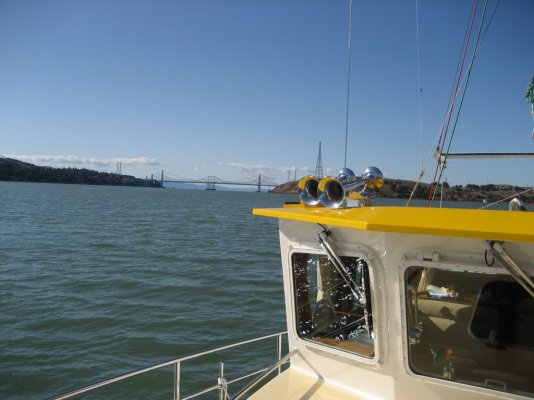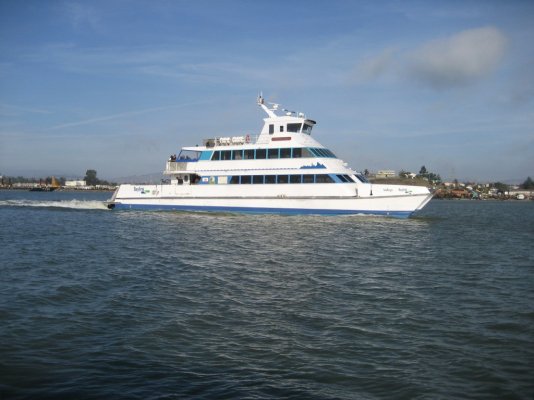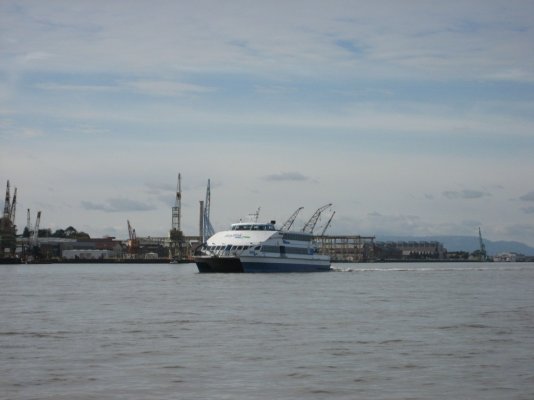psneeld wrote:
There is no reference to "recreational"
*This is true.* And in the eyes of the regulations, all vessels of a certain type are equal, just as how as soon as my floatplane touches the water I am bound by the Colregs just like a power vessel.
But like all laws or rules, there is what is written and there is common sense.* I think Larry spelled this out very effectively in his previous post.
Just as a prudent car or motorcyle driver doesn't challenge a semi just because the car or bike*driver has "the law" on his side, the driver of a small recreational vessel will be wise--- in my opinon--- to not challenge the operator of a commercial vessel, particularly a big one, just because the letter of the law is on his side.
While there will be plenty of people on this forum, I'm sure, who will vehemently*disagree with me, I take the attitude that someone working on the water for their livlihood--- a tug crew, a commercial fishing crew, a ferry crew, a ship's crew, the USCG, a pilot boat crew, you name it--- is there for reasons far more important in the overall scheme of things*than my wanting to have a nice afternoon drinking a glass of wine and eating*chips and dip*on a mooring in a pretty bay.
So my attitude, which is shared by my wife, is that any commercial vessel we come across in our cruises is the "stand on vessel" regardless of what the Colregs might say about the situation.
If a gillnet crew decides to put their net across a channel such that we're forced to deviate from our course and go clear around the end of their net, we'll do that happily and with a wave.* They're earning their living and they have to go where the fish are (or they hope they are).* If that inconveniences us a bit, well, I'm not out earning my living with my boat, I'm just screwing around with it for fun.
If a ferry captain decides that for whatever reason he needs to divert from the ferry route marked on the chart, assuming he's not the captain of the*
Elwha or the*
Costa Concordia I view him as doing his job.* I may not understand
why he's going where he's going but that doesn't matter.* He's going there, so we view our responsibilty as maneuvering our own boat well clear.
If we should think that what the commercial vessel is doing might endanger us in some way--- a situation that has never arisen for us*in almost 30 years of boating in these waters--- Sailor of Fortune has the answer.* Call on the appropriate channel.
Continuing on and "waiting to see what will happen" is a fool's course, in my opinion.* We take the attitude that anything can happen, so we take steps to not be a factor in whatever a commercial crew chooses to do.* If that means adding a few minutes to our journey, so what?* If we were in that big of a hurry we shouldn't be out boating in a GB in the first place*

And my wife and I enjoy watching the "pros" at work on the water, be it a seine boat*setting *for salmon, a tug and tow, a tanker manuevering its way into an anchorage off the refinery, and so on.* So we have no issue with taking a little more of our time so that*they will perhaps need a little less of theirs.
*
-- Edited by Marin on Monday 20th of February 2012 06:38:38 PM



